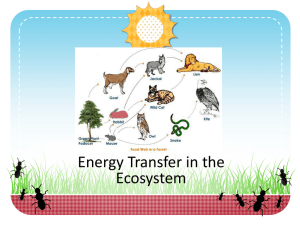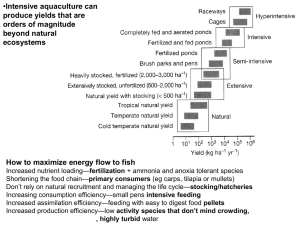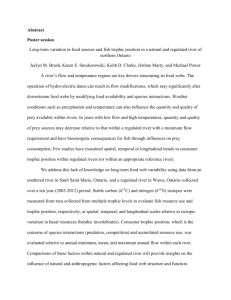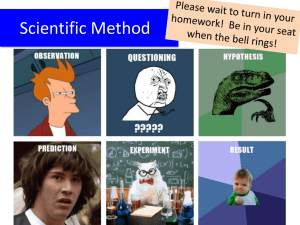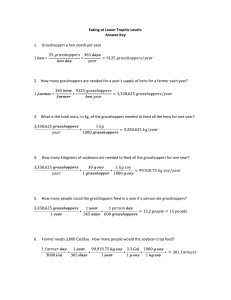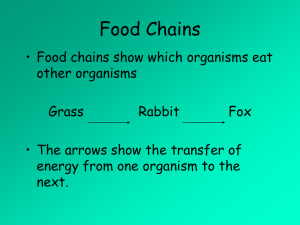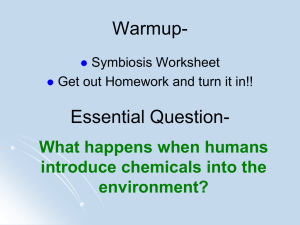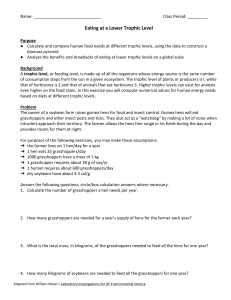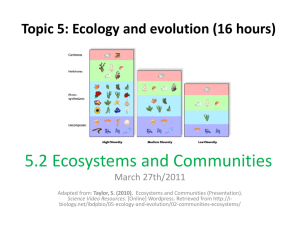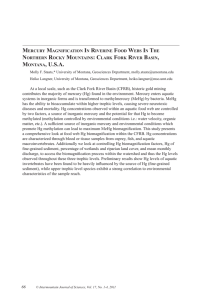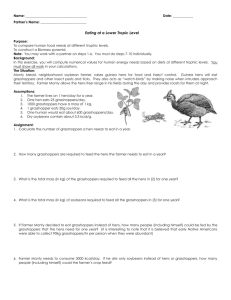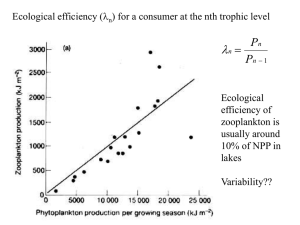APES Food for Thought**Trophic Levels
advertisement
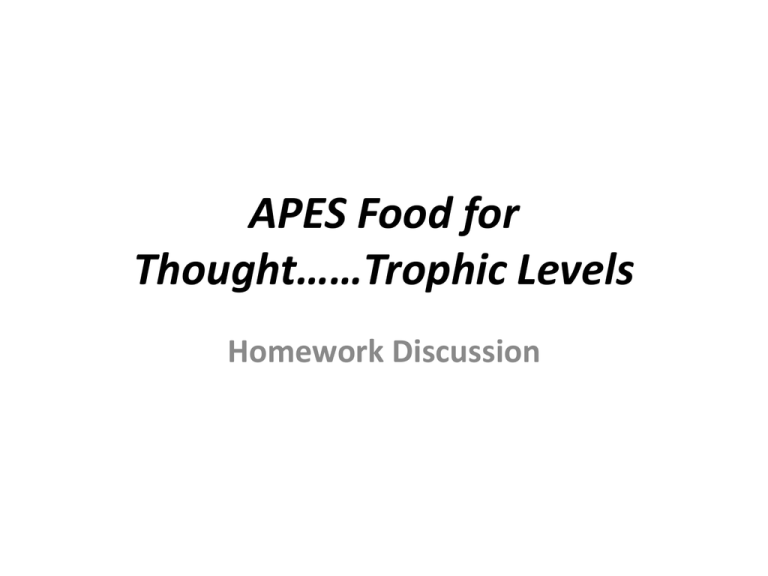
APES Food for Thought……Trophic Levels Homework Discussion Guinea Hens, Grasshoppers, Soybeans, and Cows Let’s look at some energy pyramids if humans ate grasshoppers instead of hens 1 human/yr 15 humans/yr 365 hens/yr 3,330,625 gh/yr 3,330,625 gh/yr Sometimes it’s better to compare kg to get a true picture of energy efficiency Which is more efficient to eat? A human needs 55g protein/day 345 humans/acre/yrs 3,600 humans/acre/yrs Soy = 200,000 g protein/acre/year 1 cow = 19,000 g protein/acre/yr. Let’s take a closer look at protein supplied by cows vs. soybeans Benefits of eating at a lower trophic level Drawbacks of eating at a lower trophic level •Feed more people •Less arable land requires more inputs •More land required to grow meat •Plants convert 1-10% energy of sunlight to edible food •Supply B-12 in diet •Use less arable lands (steep, rocky) to grow meat •Cows convert 1-10% energy from hay/grain to meat •Source of labor, leather, fertilizer, heat Less arable lands can be used for grazing land Biomagnification of DDT, mercury Eat Fish???? Top trophic level results in a 1/1,000 energy loss 1g 10 g 100 g 1000 g Biomagnification vs. Bioaccumulation Bioaccumulation refers to how pollutants enter a food chain Biomagnification refers to the tendency of pollutants to concentrate as they move from one trophic level to the next water to zooplankton: 800x zooplankton to fish #1: 31x fish #1 to fish #2: 1.7x fish #2 to gull: 4.8x overall: 202,368x
